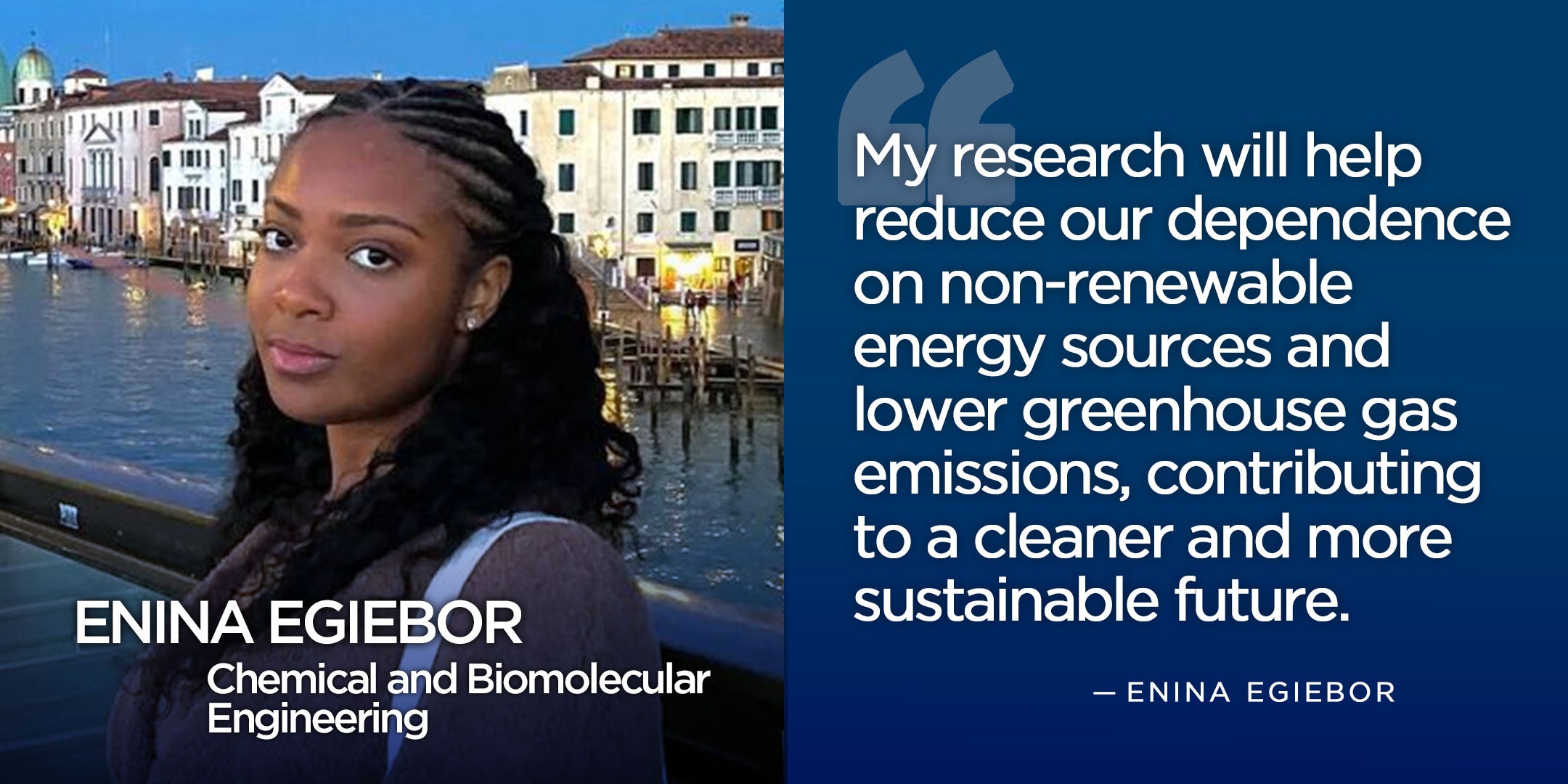Meet Enina
- Department: Chemical and Biomolecular Engineering, George R. Brown School of Engineering and Computing
- Year in Graduate School: 2nd year
- Expected Graduation Date: May 2028
- Degree: PhD
- Hometown: Montgomery, AL
Q: What is the overall problem your thesis will help to address?
My thesis focuses on integrating photovoltaic cells with electrochemistry, specifically on advancing water-splitting chemistry. My work aims to develop and scale up solar-driven technologies to produce green hydrogen, an eco-friendly alternative to fossil fuels. This research will help reduce our dependence on non-renewable energy sources and lower greenhouse gas emissions, contributing to a cleaner and more sustainable future.
Q: Can you add more scholarly depth for specialists in your field?
I am currently investigating organic oxidation as a viable alternative to the traditional oxygen evolution reaction (OER) that takes place at the anode in electrochemical systems. By utilizing organic molecules with lower thermodynamic potentials, this approach can significantly reduce the operational energy demand while increasing hydrogen production at the cathode. In addition to reducing the reliance on platinum group metal (PGM) catalysts, this strategy enables the generation of value-added products at the anode. By focusing on improving the activity and stability of low-cost, earth-abundant metals, I aim to further enhance the efficiency and economic viability of photoelectrochemical cells (PECs) for direct and scalable solar-to-hydrogen hydrogen production.
Q: Would you like to acknowledge any funding?
Department of Energy (DoE) and Chevron New Energies
Q: What do you see as the most pressing sustainability challenge the world is facing?
The increasing threat of climate change and global warming from the continuous use of fossil fuels.


